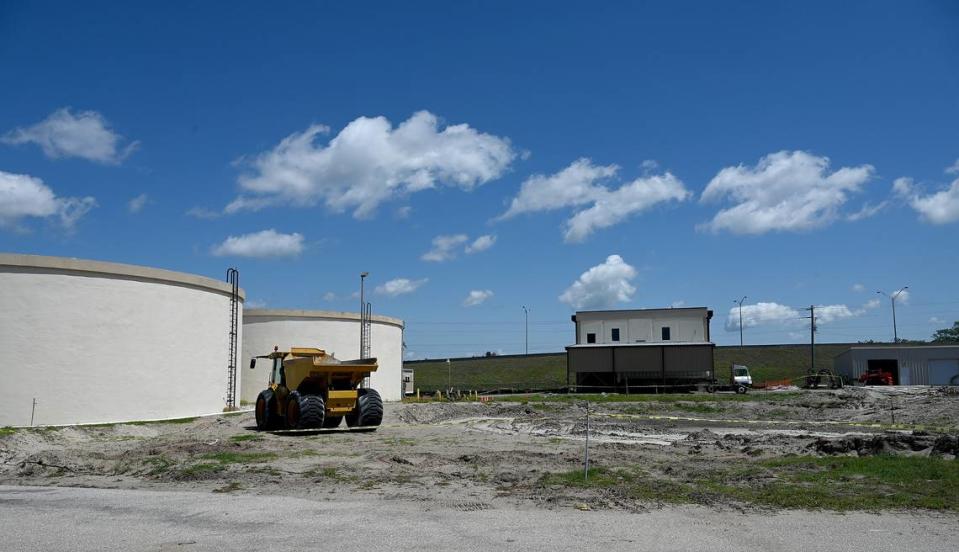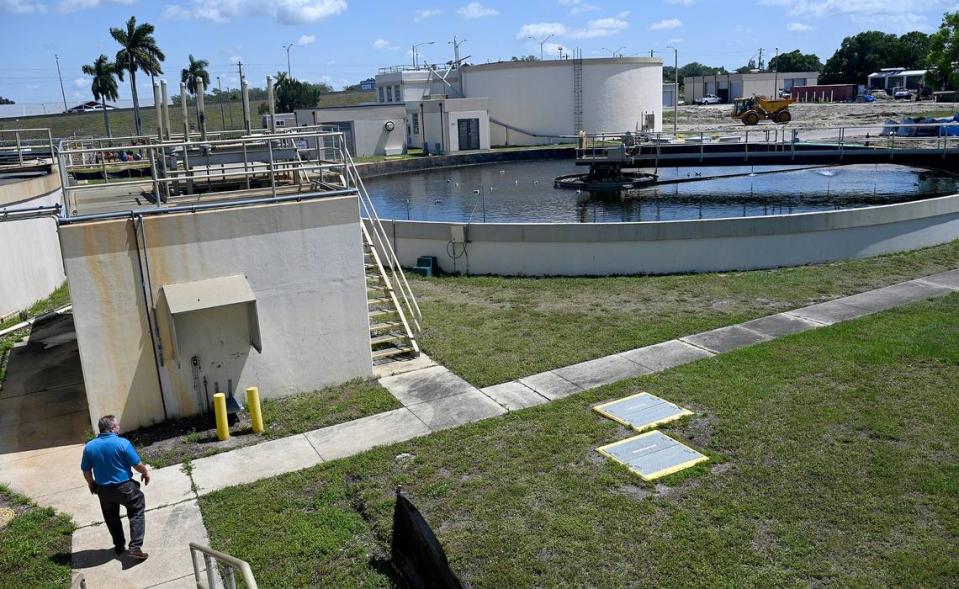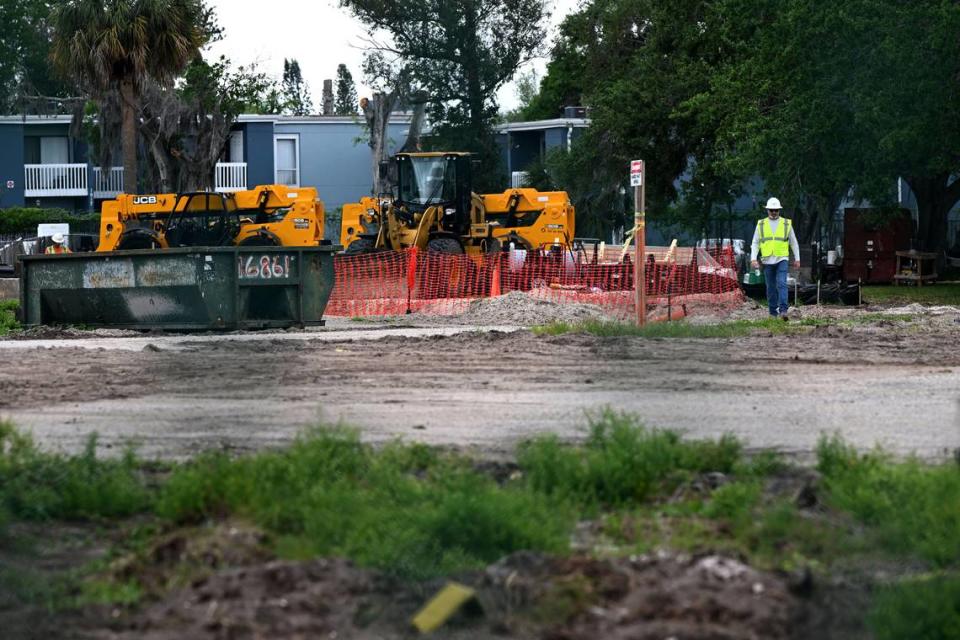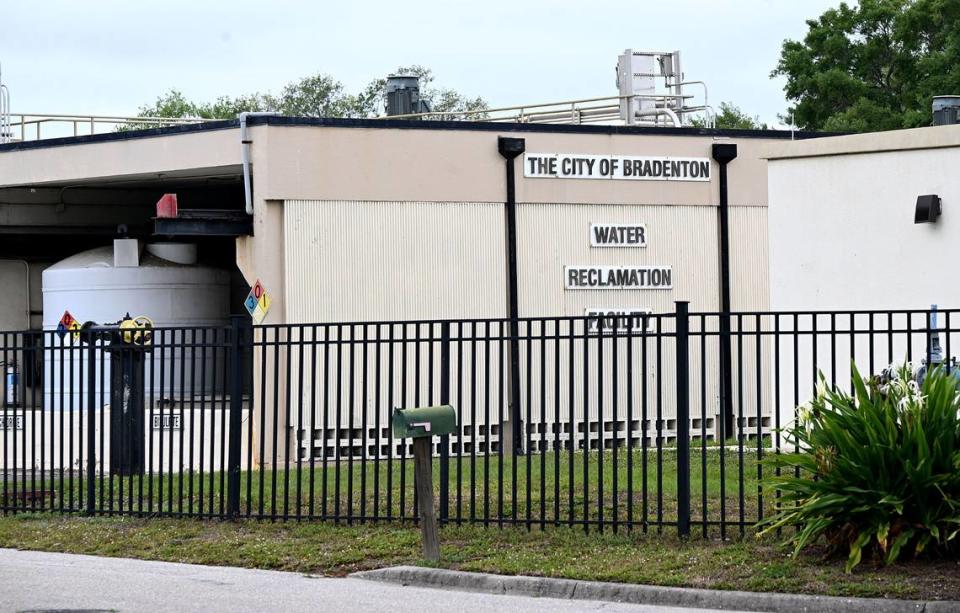Why does Bradenton keep spilling sewage into the Manatee River? Here’s what we found
Reality Check is a Bradenton Herald series holding those in power to account and shining a light on their decisions. Have a suggestion for a future story? Email our journalists at metro@bradenton.com.
City officials pointed to a filter blockage when Bradenton spilled 1.2 million gallons of partially treated sewage into the Manatee River in February, but detailed reports reveal another issue at the treatment plant.
City staff said the spill is a symptom of old infrastructure that leaders have promised to upgrade as a result of a lawsuit in 2022. The work is expected to be completed by 2032.
But the Bradenton Herald’s review of key documents found that old pipes and sewer drains and an outdated wastewater plant are not the only problems.
Staffing and training issues at the wastewater facility are also to blame for this and other recent spills, according to several reports that city staff made to the Florida Department of Environmental Protection (FDEP).
Now city leaders say they have a new plan to address staffing and other problems at the plant with some temporary help from a private consulting firm.
“We have some improvements we need to make,” City Administrator Rob Perry said. “Both the infrastructure improvements and the proficiency development of staff and management. But we have gotten very good support from our city council, and we’ll continue to tackle issues that we have.”
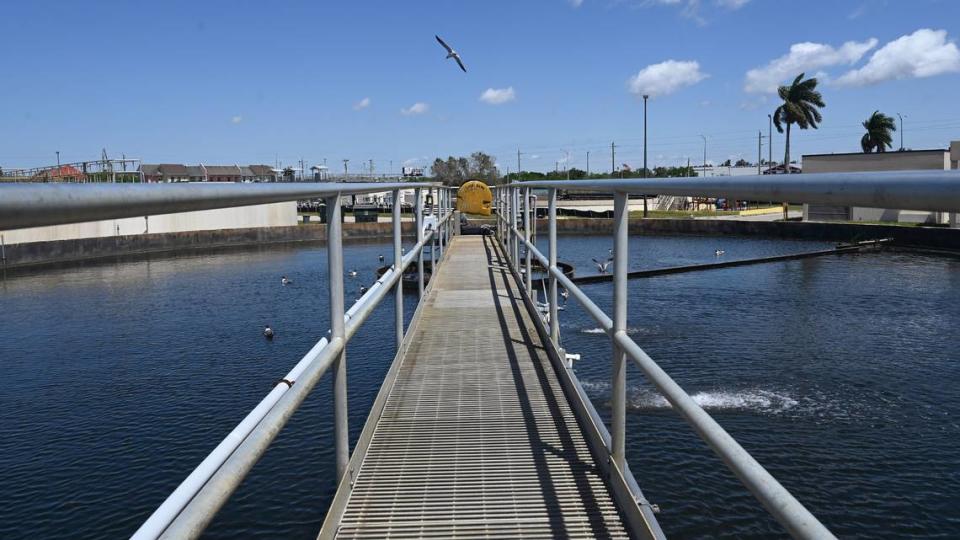
Bradenton staffing issues cause spills, reports say
Reports filed by Bradenton’s waste managers say that the city’s sewer plant is understaffed and lacks experienced employees.
“The underlying and ongoing issue at the (Wastewater Reclamation Facility) is the lack of licensed operators and properly trained trainees,” a report filed five days after February’s spill says.
A search of spill reports to FDEP over the last six months shows several more incidents caused by staffing issues:
An 800-gallon spill of raw sewage within the plant on Feb. 18 happened after a single operator on duty failed to notify the chief plant operator about an equipment malfunction on Feb. 17.
A 10,000-gallon spill on Jan. 1 was attributed to staffing issues. According to the report, a mechanical filter overflowed because a lone plant operator did not have time to complete routine hourly checks. Raw sewage spilled onto the grounds of the wastewater plant and into a storm drain leading to the Manatee River. There was not adequate staff on duty to clean up the spill until the second shift of the following day.
A 300-gallon spill of raw sewage onto the grounds of the plant on Oct. 23 was attributed to a mistake by a trainee.
A 2,000-gallon spill of raw sewage onto the grounds of the plant on Oct. 12 was due to staff not following procedure, a report said.
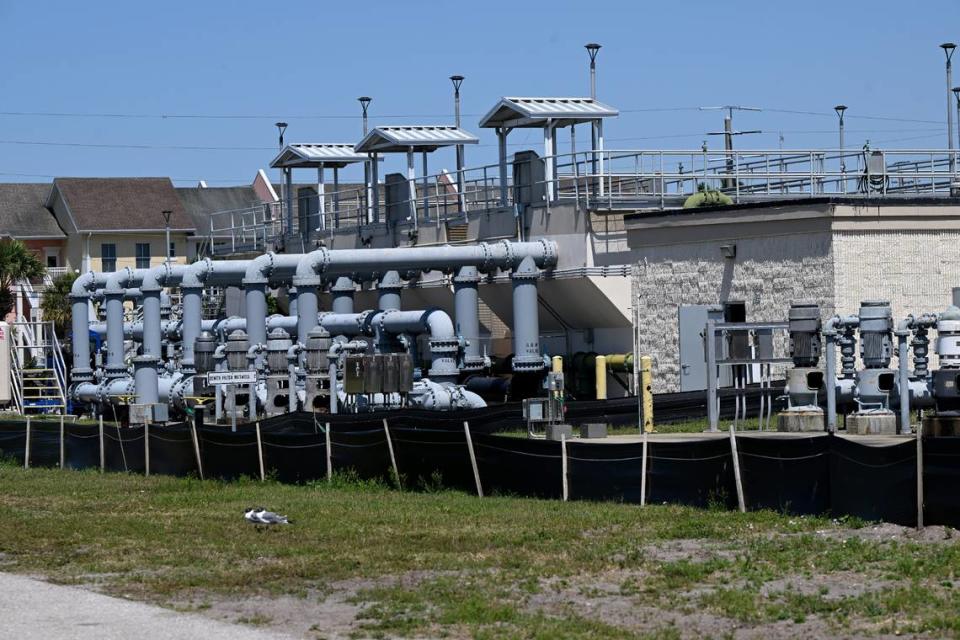
Jobs unfilled at wastewater plant
Bradenton’s wastewater plant is supposed to have a staff of 16 licensed operators and operator trainees, according to the city’s most recent budget.
As of Wednesday, at least a quarter of those jobs are unfilled. The City of Bradenton has three job listings for full-time licensed wastewater plant operators posted on its website, as well as one full-time trainee position.
Maximum pay for the licensed operator positions ranges from $24.39 to $29.33 an hour, while the trainee position offers up to $19.67 an hour.
By comparison, a wastewater trainee job currently listed by Manatee County offers a pay scale of $17.06 to $31.61 an hour. The county does not have any licensed operator jobs currently listed.
Average hourly pay for wastewater treatment plant operators in Florida was $25.90 in 2022, according to the U.S. Bureau of Labor Statistics. The national average was $26.78.
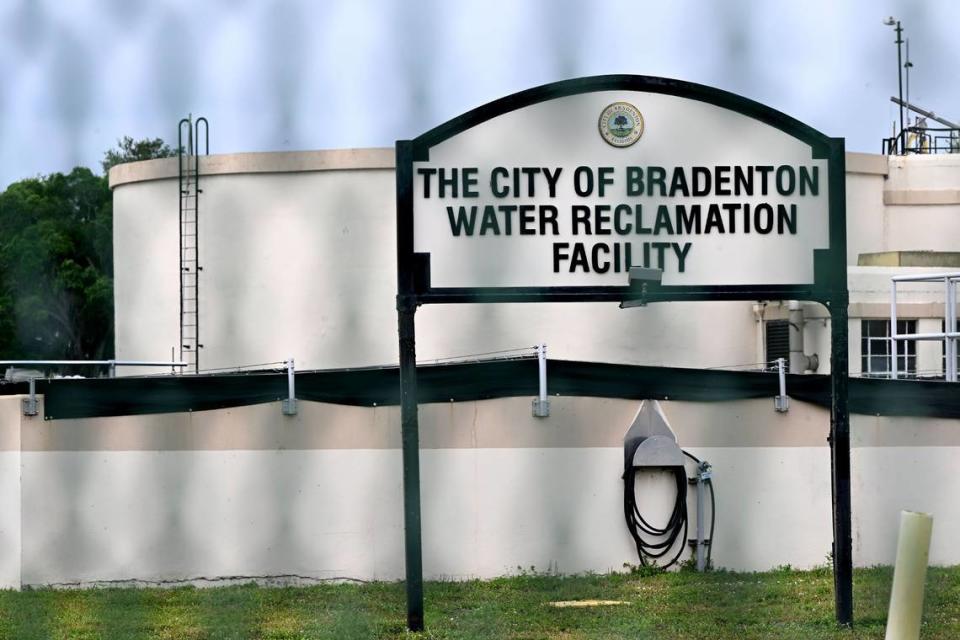
What’s being done to fix staffing issues?
Previous reports indicate that the city’s wastewater managers have been asking the city to hire more licensed wastewater operators for months.
A report by wastewater management staff following a spill on Oct. 23 said: “Requesting again, that HR find licensed operators to hire.”
The report outlined how minimally the plant was staffed at the time, noting that a typical weekday crew consisted of two trainees with minimal experience, one licensed operator, a chief operator and the superintendent.
After several recent spills, reports said issues would be addressed by retraining plant staff.
But after February’s 1.2 million gallon spill, the city says it will take a new approach.
Jacobs Solutions Inc., an engineering and consulting firm, will be contracted to provide additional staff, training and services for the plant.
“It’s kind of like a ‘rent-an-expert’ program,” City Administrator Rob Perry said.
Jacobs has provided similar services in cities across the U.S.
In addition to temporarily filling the staffing shortage, Perry said that the firm will improve long-term operations of the plant, including maintenance, solids management and data management.
A service agreement has yet to be completed, but Perry estimates the services will have an annual cost of up to $1.5 million.
City utilities generate about $32 million a year, Perry said.
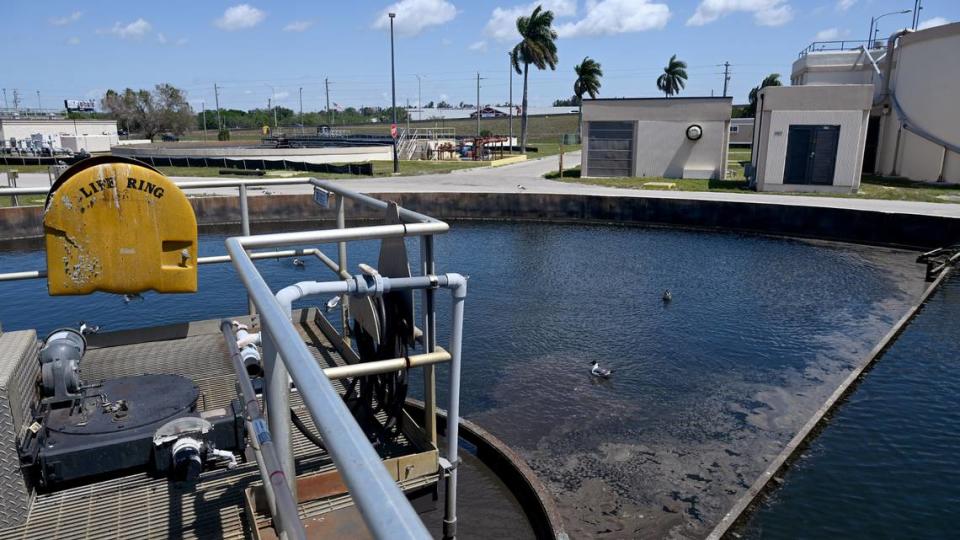
Is 2032 soon enough for a fix?
Over 160 million gallons of wastewater discharges from the Bradenton plant into the Manatee River were documented between 2017 and 2021, prompting Suncoast Waterkeeper and other local groups to file a federal suit against the city for violating the Clean Water Act.
In a 2022 settlement, the city agreed to update its aging infrastructure and pay extra fines for future violations that go towards water quality improvement efforts.
Since then, there have been fewer large spills. But the wastewater plant has continued to violate state pollution rules by not removing enough nutrients from treated wastewater.
“They’re out of whack, particularly when it comes to nutrients,” said Suncoast Waterkeeper founder and board member Justin Bloom.
When nutrient-laden wastewater is discharged into the water bodies, it can contribute to harmful algal blooms and a host of other issues.
Bradenton’s treated wastewater is discharged into the Manatee River, which is currently on the state’s list of impaired waters due to high levels of nutrients and fecal bacteria.
But Bloom also said Bradenton is “making great strides.” He said Bradenton’s problems are typical for cities that are trying to bring problematic wastewater systems into compliance.
“The beginning is difficult, and it gets better and better with each year,” Bloom said. “They’re in this period of transition, and they will need to rebuild their staff. It’s going to take time and money, and they have shown the commitment to find the money.”
Perry said the city hopes to stop using the Manatee River for discharging treated water sooner than 2032. Instead, treated wastewater will be discharged through an underground injection well.
“We hope to be out of the river a great deal earlier,” Perry said. “We want to do everything we can do to eliminate and minimize any environmental impacts.”
Other fixes could come sooner as well.
With the help of the Jacobs firm, the city hopes to add in-house laboratory testing that should allow for better control over removing nutrients from wastewater.
And the 2024-25 state budget, although not approved by Gov. Ron DeSantis yet, has $2.2 million slated for Bradenton wastewater improvements.
